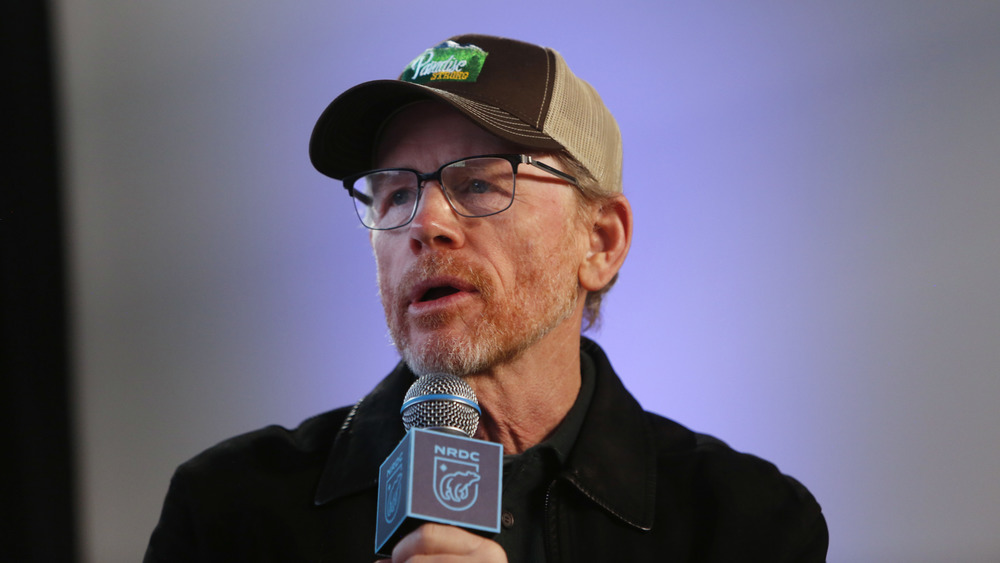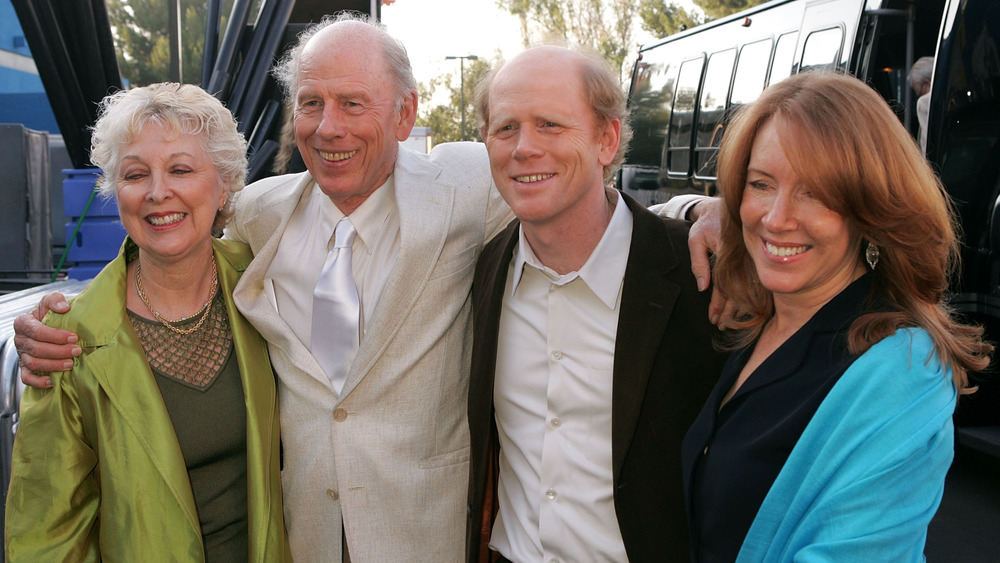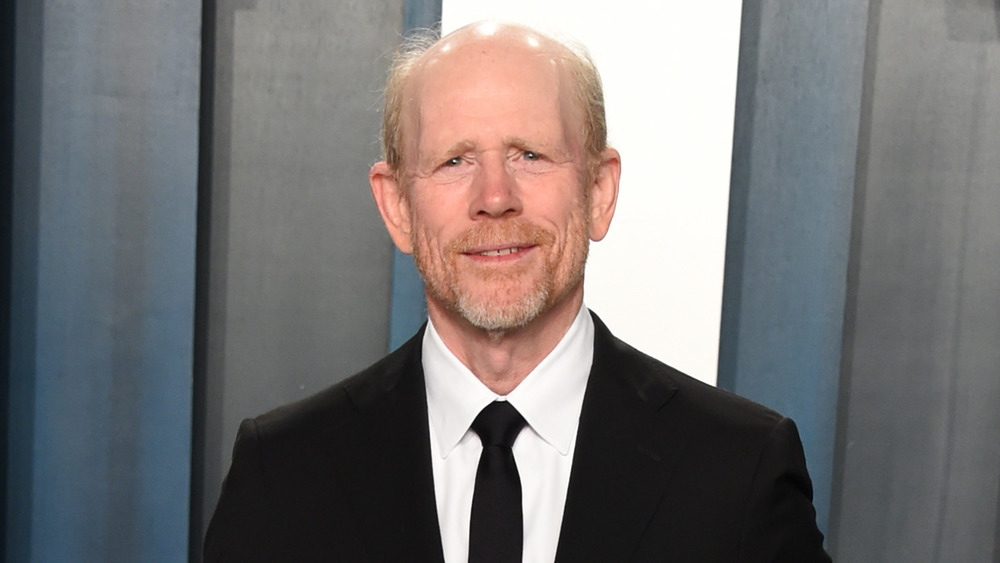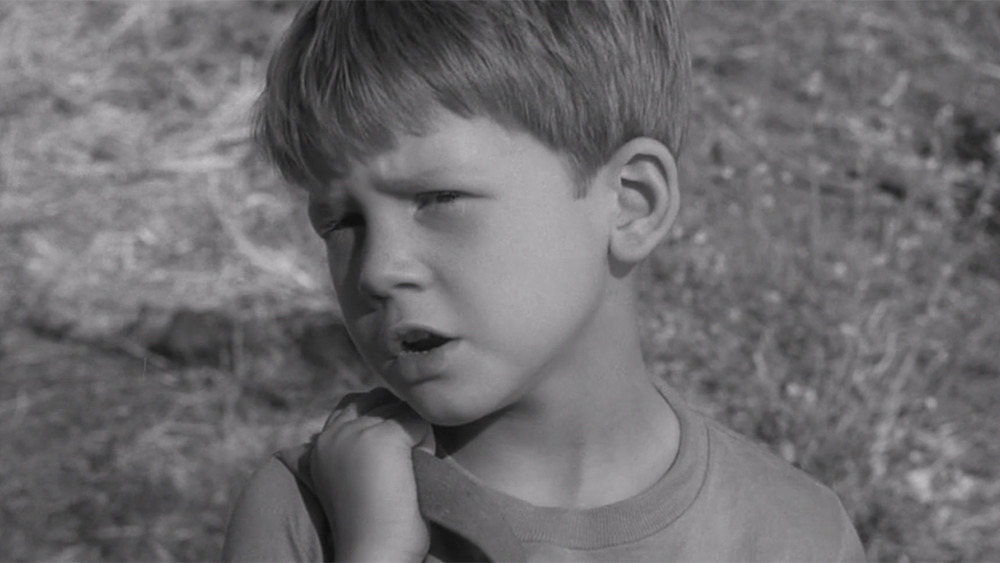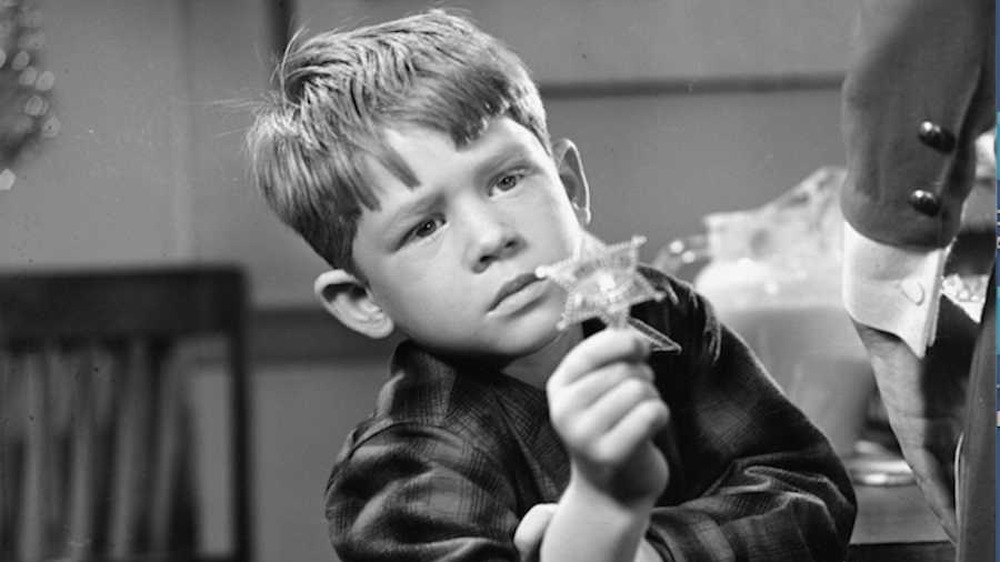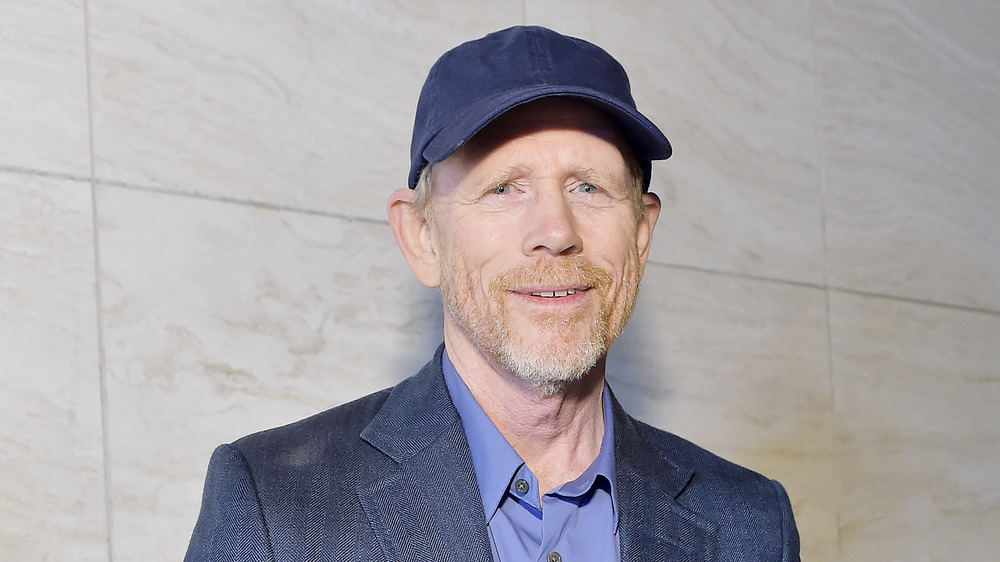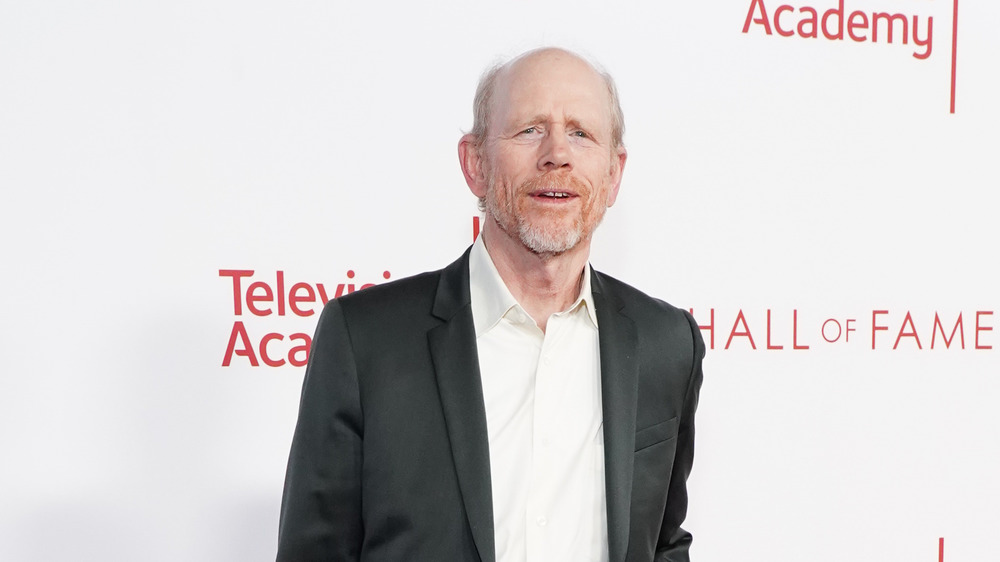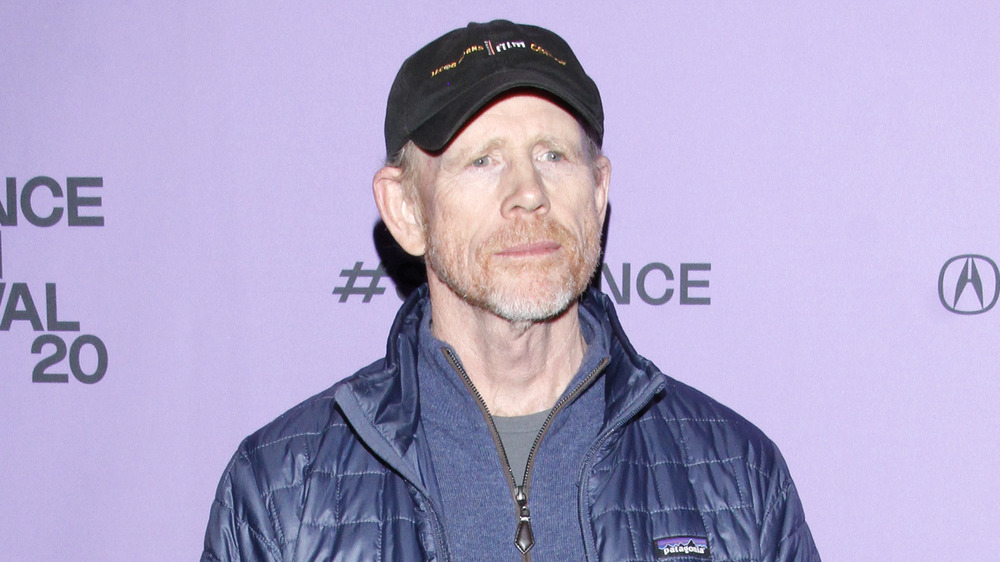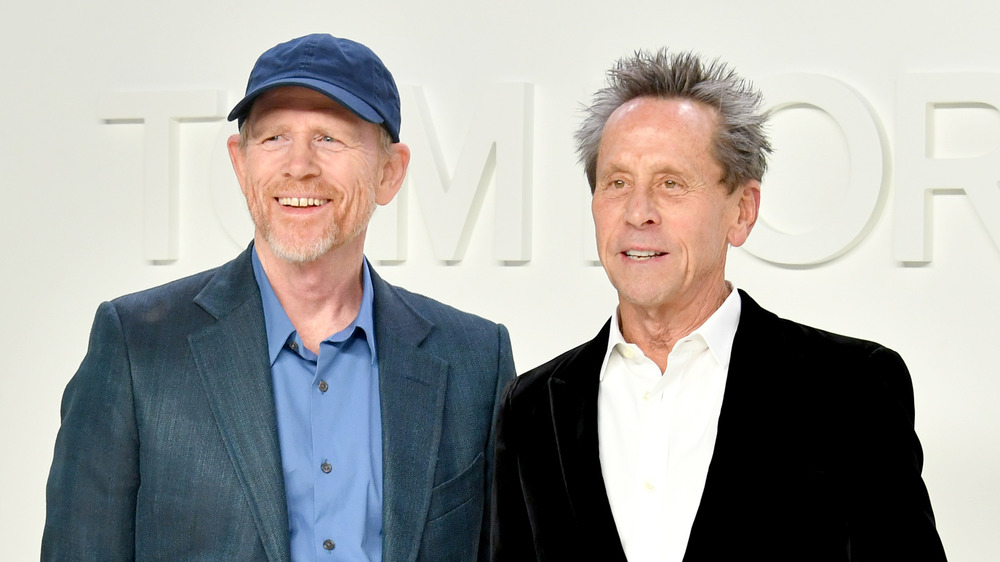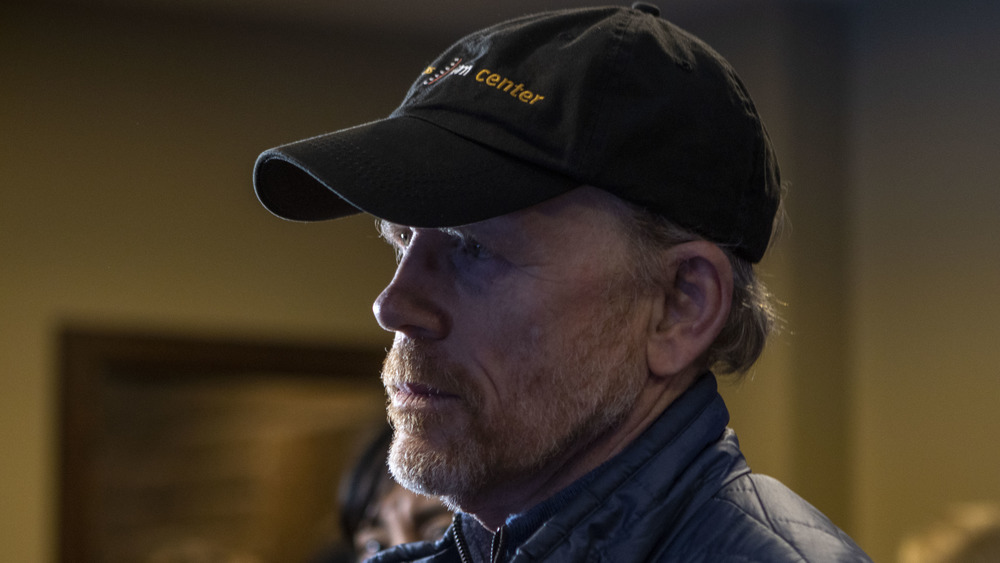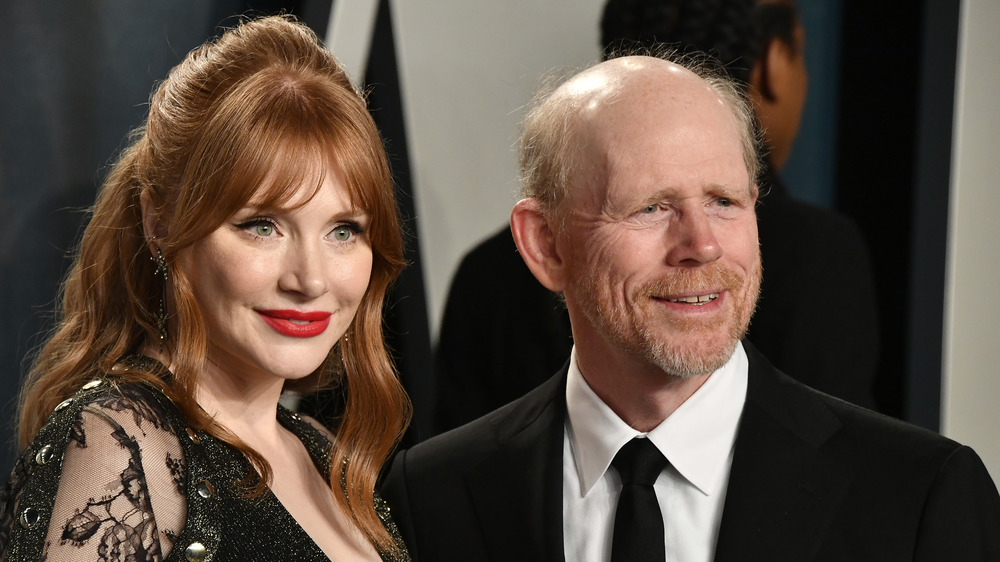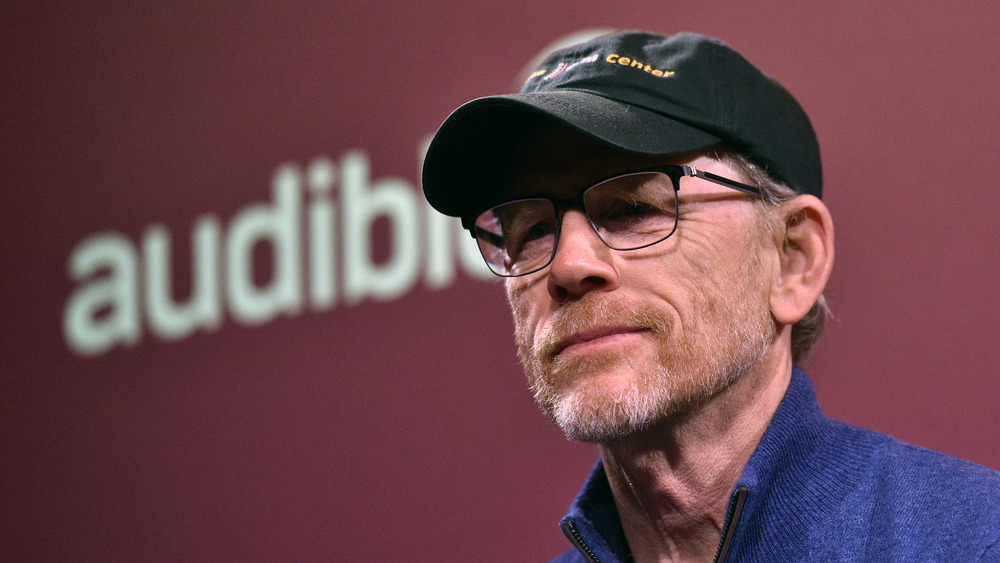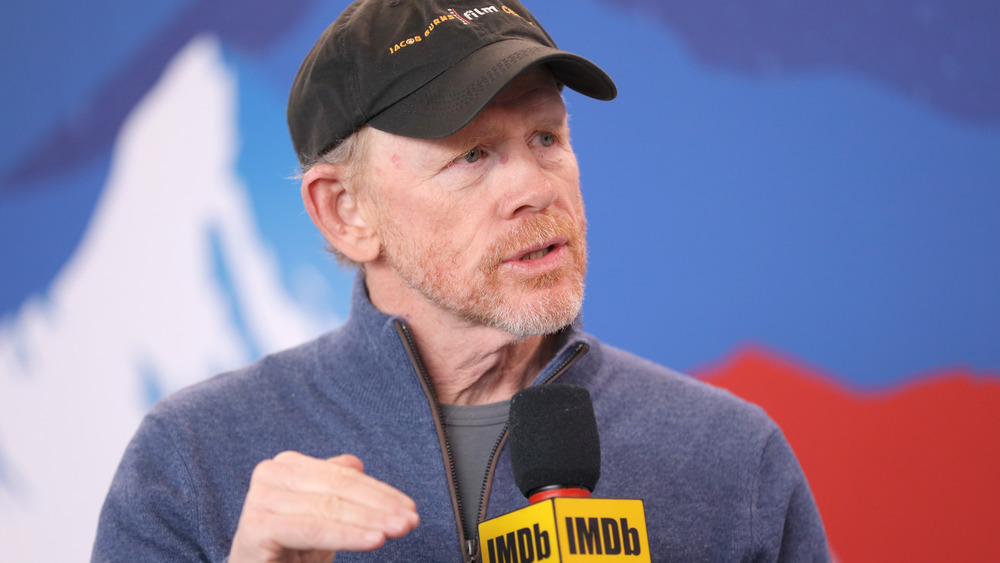The Untold Truth Of Ron Howard
Ron Howard has refused to put himself in a box, and his willingness to push boundaries and try new things has led to an impressive career as both an actor and director. He got his foot in the door as a child actor when he landed his very first role in the film The Journey, and after appearing in minor roles on TV shows like The Twilight Zone and Dennis the Menace, he got his big break playing Opie in The Andy Griffith Show. He later went on to play Richie Cunningham in the popular sitcom Happy Days.
After years of working as an actor, Howard decided that he wanted to be on the other side of the camera, and in his early twenties, he became a director. Today, the man known for his down-to-earth mannerisms and his signature baseball hat is a two-time Academy Award winner for his film A Beautiful Mind, and he has directed several other critically acclaimed films, including Frost/Nixon, Apollo 13, and Rush. But what made Howard decide to become a director? What are his secrets to success? And did he ever consider leaving show business? Let's dig into a few lesser-known facts about Ron Howard.
He followed in his parents' footsteps
It seems like Howard was fated to work in Hollywood — both of his parents were actors, and he chose to follow in their footsteps from a young age. His father, Rance Howard, decided that he wanted to be an actor after landing a part in his school's Christmas play when he was in seventh grade. He met his wife, Jean Speegle, while they were working in a touring children's theatre production throughout Oklahoma. In fact, it was Rance who helped Ron make his uncredited movie debut in Frontier Woman.
Frontier Woman would be Rance's first feature film, and since Jean had also landed a part, they wanted to see if they could involve their 18-month-old son in the production somehow — they wanted his grandparents to get to see them all in the film together! The director only agreed to it because Rance performed his stunts so well. Ron's first real, credited role in The Journey was still a few years off, but he was already on his way to becoming an actor.
He struggled in school
Howard wasn't a troublemaker in school, but he did struggle in a traditional classroom. A typical year involved being tutored on set for about six months, and then spending a few months in school. Howard thrived when he was learning one-on-one with his tutor, Catherine Barton, and he still remembers her lessons about poetry and literature to this day — but he often had trouble keeping up in a classroom with other kids. And while he was playing catch-up on assignments, his fellow classmates were either asking him for autographs or making fun of him, which proved distracting.
"The kids tended to — I wouldn't say ostracize me — but to make me uneasy because there'd always be two or three weeks where every day at school was more like some kind of a personal appearance where I was at everybody's disposal," Howard told the Academy of Achievement. He explained, "I wasn't a person. I was this sort of image from TV that they now had at their disposal. It was kind of strange."
He decided to become a director when he was a child actor
Howard began his career as an actor, but he realized that he wanted to be a director one day while working on The Andy Griffith Show. Even though he was young, the crew encouraged him to make suggestions, give feedback, and raise his hand to speak up when he had a question or comment about a scene. He loved being able to contribute, and knowing that the adults on set took him seriously was a huge confidence booster. While he loved spending time with the other actors, he was especially interested in learning from the crew.
"They'd let me sit up there and work the camera or learn a little something about sound, how the microphone worked, and placement, and lighting, and things like that," Howard said in an interview with the Academy of Achievement. He continued, "After a while, I realized that the director was the one person who, moment to moment, day in and day out, really got to play with everybody. And the job just started to look very, very good to me." Howard was only a kid at the time, so it would take years before he could make his dream a reality. But he always kept this long-term goal in mind while working his way up.
His father wrote his favorite episode of The Andy Griffith Show
While Howard was working on The Andy Griffith Show, his father Rance was very much involved with his career – he wanted to make sure that his son was safe and happy on set, and he also wanted to give his input to make the show the best it could be. He occasionally found himself getting frustrated with the portrayal of the father-son relationship between Opie and his dad, Sheriff Andy Taylor. Sure, it was funny watching Opie sass back to Andy sometimes, but Rance wondered if their relationship could be more realistic, and he suggested as much to Andy Griffith himself. As a result, the showrunners decided to base Opie and Andy's relationship on Rance and Ron's relationship going forward, and Rance got involved with the writing process.
This is how Rance ended up writing Ron's favorite episode of the show, titled "The Ball Game." Sheriff Andy has to umpire a baseball game between the kids from Mayberry and a team from a neighboring city — but he feels conflicted, because Opie is on the Mayberry team. During the game, Andy calls Opie out on a play that could have handed the victory to Mayberry, sparking an argument with Opie and the rest of the town on one side and Andy on the other.
He was disappointed in the first films he directed
It may be hard to believe that this Academy-Award winning director was disappointed in the first movies he directed, but Howard struggled to feel confident behind the camera when he made the shift from acting. He was given the opportunity to direct his first film, Grand Theft Auto, when he was only 23 — and on his first day of shooting, he was so nervous that he thought he would be fired by the time lunch rolled around! But Howard stuck with the project, learning the ropes as he went along. However, he needed to get a few more films under his belt before he felt truly confident in his directing skills.
"I was playing every role in my mind and trying to make puppets out of everybody. And because I was young, I was terrified that people would second-guess me. I was so prepared, and pretty dictatorial about how things had to go," Howard said in an interview with DGA Quarterly. He added, "I just felt like the magic wasn't happening, you know?" It was while he was directing Night Shift in 1982 that things finally fell into place — he learned to place his trust in the writers and actors, and he allowed himself to relax and take a looser approach to directing.
He didn't want to be typecast as a director
When you look at Howard's extensive filmography, it can seem like his style is tough to pin down. He doesn't tend to stick with any particular genre. Although he got his start in comedy, he's also directed documentaries like Pavarotti, historical dramas like In The Heart of the Sea, thrillers like The Da Vinci Code, and even the Christmas movie How the Grinch Stole Christmas. Howard says that this is no accident — early on in his career as a director, he made a strategic choice to work on films in a wide variety of genres so that he could never be pigeonholed.
"As an actor, I had great experiences, I enjoyed it. But I was limited as an actor, and I got typecast," Howard admitted in an interview with the Independent. "I didn't want to fall into that pattern as a storyteller. I always had a curiosity about the way the world works: human interactions, the way we rise to challenges, how we define ourselves at work, what matters most in our personal lives."
He considered becoming a journalist
It may be hard to imagine Howard doing anything other than working in show business. After all, it seems like he was destined to act and direct — but there was a time when he actually considered pursuing a different path. At one point, Howard thought about becoming a journalist. He thinks of himself as a storyteller at heart, which is what led to him to become a director rather than continue acting. However, his curiosity about human nature made him wonder if he was actually suited for journalism instead.
Ultimately, he decided to stick with directing, but sometimes, he can put his talents for chasing a real-life story to good use. His journalistic instincts shine through in his documentaries. In Pavarotti, which explores the life of internationally renowned opera singer Luciano Pavarotti, he combined archive interviews, footage from performances, and conversations with Pavarotti's family and friends to paint a picture of his career. Howard took a similar approach with his documentary Rebuilding Paradise, which follows the rebuilding process for the town of Paradise, California after it was destroyed by wildfires.
He often partners with the same producer
Throughout his years in Hollywood, Howard has seen his share of successes and failures, and in such a tumultuous and unpredictable industry, he has found that working with reliable people is the key to releasing films he's truly proud of. In 1981, Howard began working with producer Brian Grazer, and the two have since partnered up to release films like Apollo 13, A Beautiful Mind, Frost/Nixon, and Splash. In 1986, they formed the film and television production company Imagine Entertainment. With a trustworthy partnership, Howard knows that even if one of their films happens to flop, they'll still be willing to sign on to projects together again in the future.
"We really rely upon each other because it often feels emotionally dangerous in the business. You are always setting yourself up to fail," Howard told the Academy of Achievement. "Most shows and movies don't quite live up to expectations. There's a degree of disappointment that goes along with almost every project that you get involved with. It's important to be working with people you really trust." Recently, Howard and Grazer also launched a startup accelerator through Imagine Entertainment, with the goal of supporting new creative talent and bringing more diversity to Hollywood.
He draws inspiration from his favorite books
While Howard learned many valuable lessons about acting and directing from his father and other professionals during his early years on sets, he has also picked up a few pointers from his favorite books. Howard loved reading The Name Above the Title, the autobiography of director and writer Frank Capra. Capra directed well-known films like It's a Wonderful Life and It Happened One Night.
"How absolutely true it is, I don't know," Howard joked in an interview with the Academy of Achievement. "But it's very inspiring, and it also offers a lot of insight into the process of directing movies: the creative undertakings, interactions with powerful people, stars, and studio executives."
Howard also says that Linda Seeger's book How to Make a Good Script Great is a fantastic resource for screenwriters because it challenges the reader to ask tough questions about their own script for the sake of improvement. "It's about rewriting, but it's very useful to anybody who's thinking of sitting down and trying to write a screenplay," Howard explained.
He disciplined his kids by "grounding" them from visiting his sets
Howard became interested in acting and directing because of his parents' example and support — and two of his own children have also chosen to follow the same career path. Howard's daughters, Paige Carlyle Howard and Bryce Dallas Howard, are both actresses, with Bryce also venturing into directing. When they were kids, Howard would let his kids tag along with him and check out the action on set. Sometimes, they even appeared on screen — Bryce was an extra in Howard's film Parenthood. But when they acted up at home, set privileges could be revoked, which meant that the Howard kids dreaded getting grounded!
"Like, when I would be grounded, they would ground me from the set, because they knew, like, I did not want to risk that!" Bryce said in an interview with CBS News. "And I remember, one time I was like, 'You're ruining my life! How could you do this to me?'" Howard said that he learned all about parenting and fair discipline from his own dad, who taught him to be conscious about following through with his word.
He always reads the reviews of his films
Howard has worked in the entertainment industry for his entire life, so he's certainly no stranger to criticism. While he has developed a thick skin over the years, he does feel sensitive to criticism — one negative comment sticks with him far longer than several positive comments. Despite this, Howard believes that listening to criticism is the best way to stay humble and maintain a healthy attitude towards your creative work. In fact, he still makes it a point to read reviews of his own films after they're released, because he believes that taking in constructive criticism is one of the best ways to grow as an artist.
"You should ultimately read your reviews...I do look at them after the dust has settled for me emotionally, after I know the way the project landed in the marketplace," Howard told the Independent. "To ignore critics and criticism can be pretty short-sighted in terms of your own evolution and growth. And I'd like very much to keep on growing."
He's still a workaholic
Ever since he was young, Howard always knew that he would have to work hard to make it in Hollywood — even if he did come from a family with connections in show business. "I don't think I've ever assumed it was going to go on forever unless I kept earning my way, earning my keep, maybe even to a neurotic extent. I never want to coast on past performances," Howard told the Academy of Achievement. "It's probably one of the reasons why I wanted to become a director, because I wanted to be able to control those opportunities so I could keep doing good work."
Even today, Howard still considers himself a workaholic. He admits that sometimes, he only takes four days off after wrapping up one film before he starts working on the next. He believes that he got his strong work ethic from his father, who continued working well after most of his peers had retired, simply because he never wanted to miss out on a great opportunity. And Howard certainly isn't slowing down any time soon. Recently, he balanced working on the documentary Rebuilding Paradise with directing the film adaptation of JD Vance's autobiography Hillbilly Elegy. Naturally, he's already got two more films lined up: a biopic of famous pianist Lang Lang and the drama Thirteen Lives, which will tell the story of the Tham Luang cave rescue in 2018.
